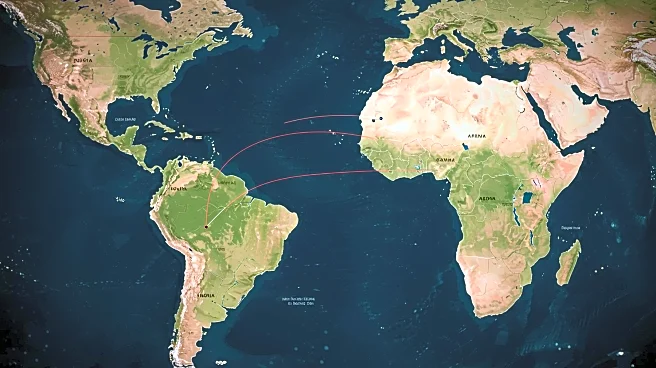What's Happening?
Japan's Prime Minister Shigeru Ishiba proposed an economic zone connecting the Indian Ocean to Africa during the Tokyo International Conference on African Development (TICAD). The initiative aims to strengthen business and investment in Africa, promoting free trade and enhancing the region's competitiveness. The summit, attended by leaders from 50 African countries, focused on economic development, peace, stability, health, climate change, and education. Ishiba announced plans to extend loans of up to $5.5 billion in coordination with the African Development Bank to address debt issues and support sustainable development. Additionally, Japan plans to train 30,000 artificial intelligence experts in Africa over the next three years.
Why It's Important?
Japan's proposal for an economic zone linking the Indian Ocean to Africa represents a strategic move to increase its influence in the region amidst decreasing U.S. presence and growing Chinese investments. The initiative could lead to enhanced trade and investment opportunities, fostering economic growth and development in Africa. The focus on artificial intelligence training aims to boost digitalization and job creation, addressing the digital divide and empowering African nations. The loans and investment support from Japan could help alleviate debt problems and promote sustainable development, contributing to long-term economic stability.
What's Next?
The summit is expected to adopt the 'Yokohama declaration,' which will outline the outcomes and future steps of the proposed initiatives. Japan's commitment to supporting Africa's development through investment and training programs will likely lead to increased collaboration and economic ties between the regions. The implementation of the economic zone and AI training programs will be closely monitored, with potential impacts on trade, technology, and economic growth in Africa.











